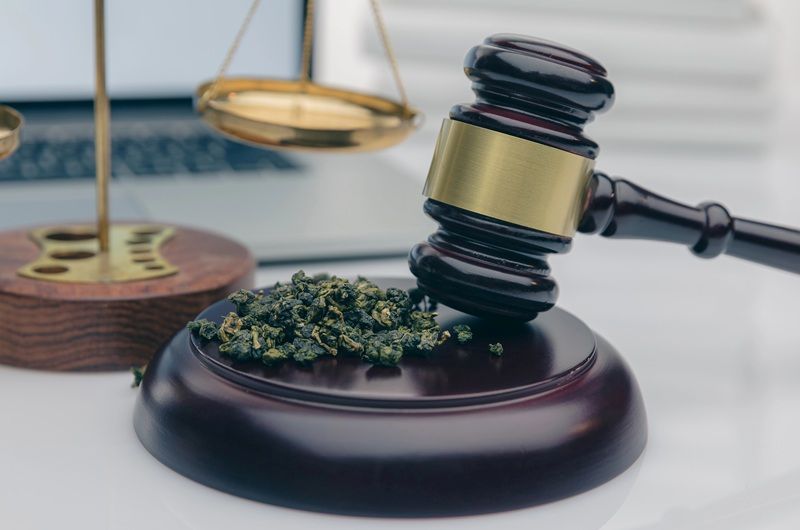Virginia law is strict when it comes to protecting minors from sexual exploitation. Understanding statutory rape laws in Fairfax County is essential for anyone who wants to ensure they are acting within the law. These laws are designed to protect minors who are legally unable to give consent, regardless of their willingness to engage in sexual activity.
A statutory rape charge can have life-altering consequences, including criminal penalties and mandatory sex offender registration. Many people assume that if both individuals agree, no crime has been committed. However, even consensual relationships between individuals of certain age groups may still be illegal under state law.
This article provides an in-depth look at statutory rape laws in Fairfax County. It covers the legal definitions, penalties, possible defenses, and how an experienced attorney can help. Knowing the law is the first step in protecting yourself or a loved one from serious legal trouble.

Understanding Statutory Rape In Virginia
Statutory rape laws exist to protect minors from exploitation and coercion. These laws apply regardless of whether the minor agrees to the relationship. Many people misunderstand statutory rape, assuming that consent makes the act legal. However, Virginia law strictly enforces age-related restrictions on sexual activity.
Understanding these laws is important for anyone in Fairfax County. Whether you are a young adult in a relationship with a minor or a parent concerned about your child’s well-being, knowing the law can prevent legal trouble. A lack of awareness does not excuse a violation, and even a misunderstanding can lead to criminal charges.
Definition & Age Of Consent
In Virginia, the legal age of consent is 18. This means that any person under 18 is considered incapable of legally consenting to sexual activity. Even if the minor willingly participates, the law does not recognize their consent.
The law assumes that minors lack the maturity and judgment needed to make informed decisions about sexual activity. Because of this, an adult engaging in sexual activity with a minor can face serious legal consequences. The older person is always held responsible under the law, even if they were unaware of the minor’s age.
In some cases, individuals may assume that turning 16 or 17 grants them the legal right to consent. However, Virginia law does not allow sexual relationships between adults and minors under 18, except in specific circumstances such as marriage. These strict rules are in place to protect younger individuals from exploitation.
Legal Terminology
While the term statutory rape is commonly used, Virginia law classifies these offenses under different legal definitions. Crimes involving minors may be charged as carnal knowledge of a child or rape, depending on the details of the case. Each term carries different legal implications and potential penalties.
The legal consequences depend on factors such as the minor’s age, the offender’s age, and whether force or coercion was involved. Courts treat offenses involving minors under 15 more severely than those involving older teenagers. Understanding these distinctions is critical for anyone facing charges.
Legal Provisions Related To Statutory Rape
Virginia law takes statutory rape offenses very seriously, with strict penalties based on the age of the individuals involved. The legal system categorizes these offenses based on the minor’s age and the age difference between the individuals. While some cases result in misdemeanor charges, others can lead to felony convictions and long-term consequences.
Carnal Knowledge Of A Child Aged 13 Or 14
Under the Virginia Code, engaging in sexual activity with a child aged 13 or 14 is classified as a felony. The law considers minors in this age group particularly vulnerable. If the offender is at least three years older than the minor, the crime is considered a Class 4 felony.
A conviction can lead to imprisonment ranging from two to ten years, along with heavy fines. However, if the age gap is less than three years, the offense is considered a Class 1 misdemeanor. A misdemeanor conviction can still result in up to 12 months in jail and a fine of up to $2,500.
Sexual Activity With Minors Aged 15 To 17
For individuals aged 15 to 17, the Virginia Code makes it illegal for adults to engage in consensual sexual activity with minors in this age group. Unlike cases involving younger minors, this offense is generally treated as a misdemeanor.
The penalties may include up to a year in jail and substantial fines. However, repeated offenses or aggravating circumstances can result in harsher penalties. Even a misdemeanor charge can lead to life-changing consequences, including a permanent criminal record.
Close-In-Age Exemptions: Romeo & Juliet Laws
Virginia recognizes that some consensual relationships between teenagers should not be treated the same as predatory offenses. The state has implemented “Romeo and Juliet” laws to address this issue. These exemptions allow for some legal protections in cases where both individuals are close in age.
For instance, if two teenagers are within a few years of each other, their relationship may not result in felony charges. The law prevents young couples from being unfairly punished when both individuals are minors. However, these exemptions have strict conditions and do not apply to all cases.
Even with close-in-age exemptions, certain relationships can still result in legal consequences. Parents and young individuals should understand how these laws work to avoid criminal charges. It is always best to seek legal advice if there is any uncertainty about a relationship’s legality.
Potential Defenses & Legal Considerations
One of the biggest misconceptions about statutory rape cases is that consent is a valid defense. In Virginia, minors under 18 cannot legally consent, so consent does not excuse the offense. This means that even if both individuals agreed, the law still considers the act unlawful.
Similarly, claiming ignorance of the minor’s age is not a defense. Even if the minor misrepresented their age, the accused can still face charges. The law assumes that adults engaging in sexual activity with younger individuals bear the responsibility of knowing their partner’s age.
Virginia law allows for a marital exemption in cases where a minor is legally married. If a person under 18 is legally wed to their partner, sexual activity is not considered a crime. However, this exemption only applies when the marriage is legally recognized.
Marital exemptions do not apply if the relationship began before the marriage. If an adult engages in sexual activity with a minor before marriage, they could still face charges. This exemption is highly specific, and anyone involved in such a situation should consult an attorney.
Consequences Of A Statutory Rape Conviction
A statutory rape conviction can lead to severe legal consequences. Depending on the circumstances, offenders may face misdemeanor or felony charges. Felony convictions can result in lengthy prison sentences, while misdemeanors still carry jail time and fines.
The severity of the punishment depends on factors such as the minor’s age and the age difference between the parties. Repeat offenders or those with prior criminal records often receive harsher penalties. Virginia courts take these cases seriously, and leniency is rare.
Sex Offender Registration
Many statutory rape convictions require the offender to register as a sex offender. This registration can have lifelong consequences, affecting employment, housing, and travel. Being labeled as a sex offender carries a significant social stigma.
Registration may be required for years or even a lifetime, depending on the severity of the offense. Failing to comply with sex offender registration requirements can lead to additional criminal charges. Avoiding this outcome requires a strong legal defense.
Impact On Personal & Professional Life
A conviction can damage a person’s reputation, relationships, and career. Employers often refuse to hire individuals with a sex crime on their record. Many educational institutions also deny admission to those with such convictions.
Personal relationships also suffer, as family and friends may distance themselves. The impact of a conviction extends beyond legal penalties, making it crucial to fight these charges with the right defense strategy. Seeking legal representation is the best way to protect one’s future.
Fairfax County Criminal Attorneys: Protecting Your Rights

With years of experience in criminal defense, we develop personalized strategies based on the specifics of each case. We analyze evidence, challenge weak claims, and seek the best possible outcome. Whether negotiating reduced charges or fighting for an acquittal, we stand by our clients every step of the way.
If you or a loved one is facing statutory rape charges, immediate action is critical. Contact us today for a confidential consultation. Your future is worth defending, and we are here to help.
Understanding statutory rape laws in Fairfax County is vital for anyone involved in relationships with individuals under 18. Virginia enforces strict penalties for those convicted, including prison time, fines, and sex offender registration. Close-in-age exemptions exist, but they are limited and do not protect all relationships. A statutory rape charge can permanently impact a person’s life. The best way to fight these charges is with experienced legal representation.




